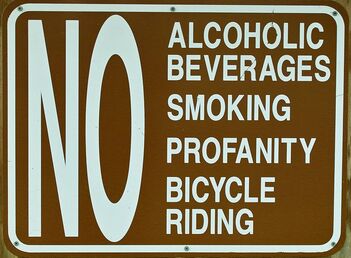 If you or someone you love is struggling with addiction, I feel for you. I had many alcoholic family members including my father. That baggage led me to marry an alcoholic the first time. Extricating or dealing with a relationship with an addict is a challenge. This article discusses some aspects of addiction. The most commonly used substance in the United States is alcohol. While alcohol is a legal psychoactive substance, it can be addicting. Many people from every social spectrum consume alcohol in many settings and never have long term adverse effects. In addition to alcohol, many mood altering substances are highly addictive and impair physical, social, and psychological functioning of persons who use them. As of this date, the latest National Survey on Drug Use and Health report is from 2016 and was published in 2017. You can view a copy of this report at this web address: https://www.samhsa.gov/data/sites/default/files/NSDUH-FFR1-2016/NSDUH-FFR1-2016.pdf The report provides the following facts:
While this report does reflect some positive trends, the problem of addiction takes a great toll on our culture. Especially disturbing is the growing evidence of the danger of opiods or herion. Generally addiction progresses through a fairly predictable cycle: experimentation, social use, dependency, addiction and hopefully, recovery. I illustrate these stages with alcohol use below: Experimentation: I have tasted alcohol and had some experience in drinking alcohol as a teenager and young adult. Alcohol has never really caused me too many problems. It has been limited due to availability and other barriers. Social use: Now, as an adult, I go to a restaurant on Friday nights with my girlfriends and co-workers. Alcohol becomes part of a relaxation ritual for me. Still my once a week drink is not creating any problems for me. Dependency: I start to view alcohol as an aid for relaxation. While going through a stressful time at work, I start to drink a glass of wine every night when I fix dinner for my family. My relaxation begins to become dependent on that glass of wine. Being a “drinker” starts to become integrated in my identity. I am a “drinker”. Note: Dependency has both a psychological and a physical component. Both are problematic. Addiction: I begin to develop a tolerance for alcohol, requiring me to use increasing amounts in order to feel the effects. Soon, I’m drinking a bottle of wine every night and it is causing great problems in my family, causing me to miss work, neglect my home, etc. I have crossed the line into addiction which will become a physical dependence if I continue. Recovery: Something occurs that prompts me to seek treatment and I discontinue my alcohol use, engage with a support system and begin to re-establish my life without substance use. Unfortunately, many times recovery is characterized by relapse. Hallmarks of successful recovery are sobriety, abstinence, social support, and active relapse prevention. How can you tell if someone will become addicted? There is currently no way to know this. Some people may use substances many times without having a problem and then at another point in their life, use and become immediately addicted. Infrequent use in small amounts generally will not require treatment. The person who uses in this manner will likely be able to stop use when they decide to. Often, legal, social, family or other types of sanctions will be enough of a threat to convince them to stop using substances. Treatment may be required for people who cannot stop substance use on their own. Without outside intervention, it is rare for an addicted person to be able to discontinue use for an extended period of time. Despite consequences, often extreme consequences, the addiction overpowers their will. The desire for use outweighs any of the external results. Treatment can decrease the economic and social costs of addiction. Additionally, there is much evidence that treatment is far less expensive than the real costs to our society. Multiple reports on the National Institute on Drug Abuse (NIDA) support this. You can review these articles at their site: https://www.drugabuse.gov/publications More on this topic later. If you or someone you love is struggling with addiction, find help through local resources or SAMHSA's website. https://www.samhsa.gov/find-treatment In the meantime, stay lovely! Allison PS-Sign up for my email list and I’ll share some great relationship tips with you! SIGN UP HERE!
Comments
|
Helping You
|



 RSS Feed
RSS Feed

